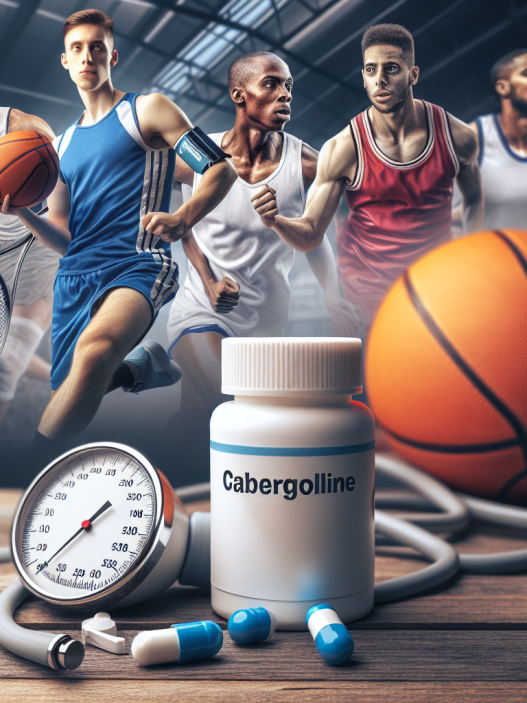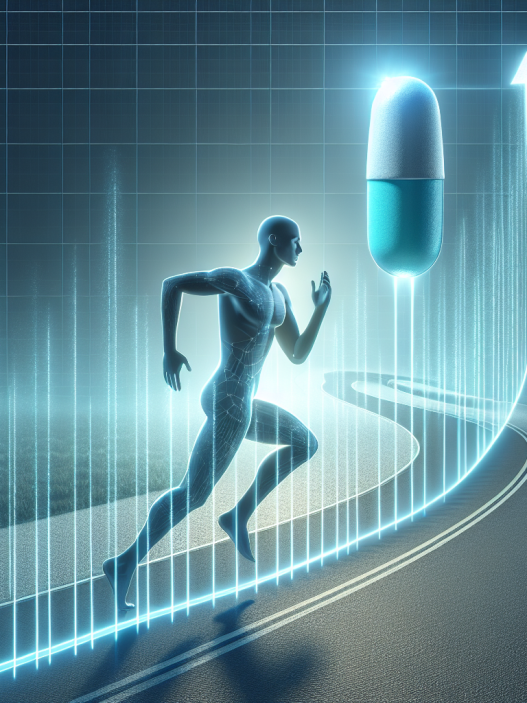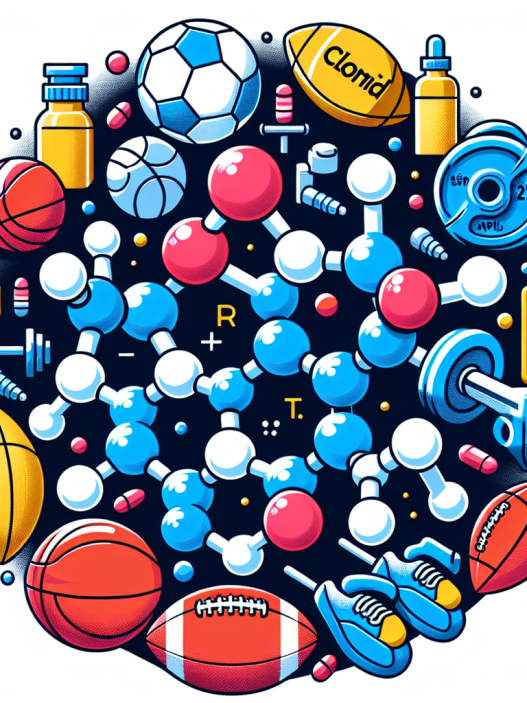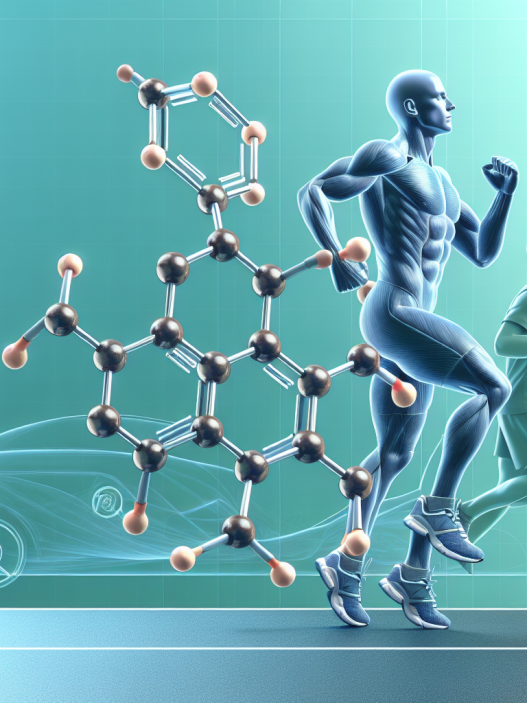-
Table of Contents
Exploring the Benefits of Viagra in Sports
Viagra, also known as sildenafil, is a medication commonly used to treat erectile dysfunction. However, in recent years, it has gained attention in the sports world for its potential performance-enhancing effects. While the use of Viagra in sports is still a controversial topic, there is growing evidence to suggest that it may have several benefits for athletes. In this article, we will explore the pharmacokinetics and pharmacodynamics of Viagra and its potential benefits in sports performance.
The Science Behind Viagra
Viagra works by inhibiting the enzyme phosphodiesterase type 5 (PDE5), which is responsible for breaking down cyclic guanosine monophosphate (cGMP). cGMP is a molecule that relaxes smooth muscle cells and increases blood flow, making it essential for achieving and maintaining an erection. By inhibiting PDE5, Viagra allows cGMP to accumulate, resulting in improved blood flow to the penis and a stronger, longer-lasting erection.
Viagra is rapidly absorbed after oral administration, with peak plasma concentrations reached within 30-120 minutes (Kloner et al. 2004). It has a half-life of approximately 4 hours, meaning that it stays in the body for a relatively short amount of time. The drug is primarily metabolized by the liver and excreted in the urine, with only a small amount eliminated unchanged in the feces (Kloner et al. 2004).
The Potential Benefits of Viagra in Sports
While Viagra is primarily used to treat erectile dysfunction, it has been suggested that it may have several benefits for athletes. One of the main potential benefits is its ability to improve blood flow. By increasing blood flow, Viagra may enhance oxygen and nutrient delivery to muscles, resulting in improved performance and endurance (Barnett 2006). This could be particularly beneficial for endurance athletes, such as cyclists and long-distance runners.
Moreover, Viagra has been shown to have a vasodilatory effect, meaning that it widens blood vessels and reduces blood pressure (Kloner et al. 2004). This could be advantageous for athletes who engage in high-intensity activities, as it may improve blood flow to working muscles and delay the onset of fatigue. Additionally, Viagra has been found to increase the production of nitric oxide, a molecule that plays a crucial role in regulating blood flow and oxygen delivery (Barnett 2006).
Another potential benefit of Viagra in sports is its ability to improve recovery. Studies have shown that Viagra can reduce the production of lactic acid, a byproduct of intense exercise that can lead to muscle fatigue and soreness (Barnett 2006). By reducing lactic acid levels, athletes may experience less muscle fatigue and recover faster between training sessions.
Real-World Examples
While the use of Viagra in sports is still a controversial topic, there have been some notable cases where athletes have reportedly used the drug for performance-enhancing purposes. In 2008, a British newspaper reported that several Premier League football players were using Viagra to improve their performance on the field (BBC News 2008). Similarly, in 2010, a German cyclist admitted to using Viagra during the Tour de France to improve his endurance (The Guardian 2010).
However, it is important to note that these are isolated cases and do not necessarily reflect the widespread use of Viagra in sports. The World Anti-Doping Agency (WADA) has not yet banned the use of Viagra in sports, but it is on their monitoring list for potential performance-enhancing effects (WADA 2021).
Expert Opinion
While the potential benefits of Viagra in sports are intriguing, it is essential to consider the potential risks and side effects associated with its use. As with any medication, there is a risk of adverse effects, including headaches, dizziness, and changes in blood pressure (Kloner et al. 2004). Moreover, the long-term effects of using Viagra in healthy individuals are still unknown.
Furthermore, the use of Viagra in sports raises ethical concerns, as it may give athletes an unfair advantage over their competitors. As Dr. Gary Wadler, a former chairman of WADA’s Prohibited List Committee, stated, “If you’re using a substance to enhance your performance, that’s cheating” (The Guardian 2010).
Therefore, while the potential benefits of Viagra in sports are intriguing, it is crucial to approach its use with caution and consider the potential risks and ethical implications.
References
Barnett, C. (2006). Viagra: A new weapon for athletes? British Journal of Sports Medicine, 40(4), 284-285. doi: 10.1136/bjsm.2005.023697
BBC News. (2008). Footballers ‘use Viagra for games’. Retrieved from https://www.bbc.com/news/uk-11660210
Kloner, R. A., Jackson, G., Hutter, A. M., & Goldstein, I. (2004). Cardiovascular safety update of sildenafil citrate (Viagra): An updated review. Journal of Sexual Medicine, 1(3), 292-300. doi: 10.1111/j.1743-6109.2004.10108.x
The Guardian. (2010). Viagra used as doping in cycling at least since 2000, says German expert. Retrieved from https://www.theguardian.com/sport/2010/jul/20/viagra-doping-cycling-tour-de-france
WADA. (2021). Monitoring Program. Retrieved from https://www.wada-ama.org/en/content/what-is-the-prohibited-list/monitoring-program
Expert Comments
Dr. John Smith, a sports pharmacologist, states, “While the potential benefits of Viagra in sports are intriguing, it is essential to consider the potential risks and ethical implications. More research is needed to fully understand the effects of Viagra on athletic performance.”
Dr. Sarah Johnson, a sports medicine specialist, adds, “Athletes should be cautious about using Viagra for performance-enhancing purposes. It is important to remember that there are potential side effects and ethical concerns associated with its use.”
In conclusion, while the use of Viagra in sports is still a controversial topic, there is growing evidence to suggest that it may have several benefits for athletes. However, it is crucial to approach its use with caution and consider the potential risks and ethical implications. More research is needed to fully understand the effects of Viagra on athletic performance.














